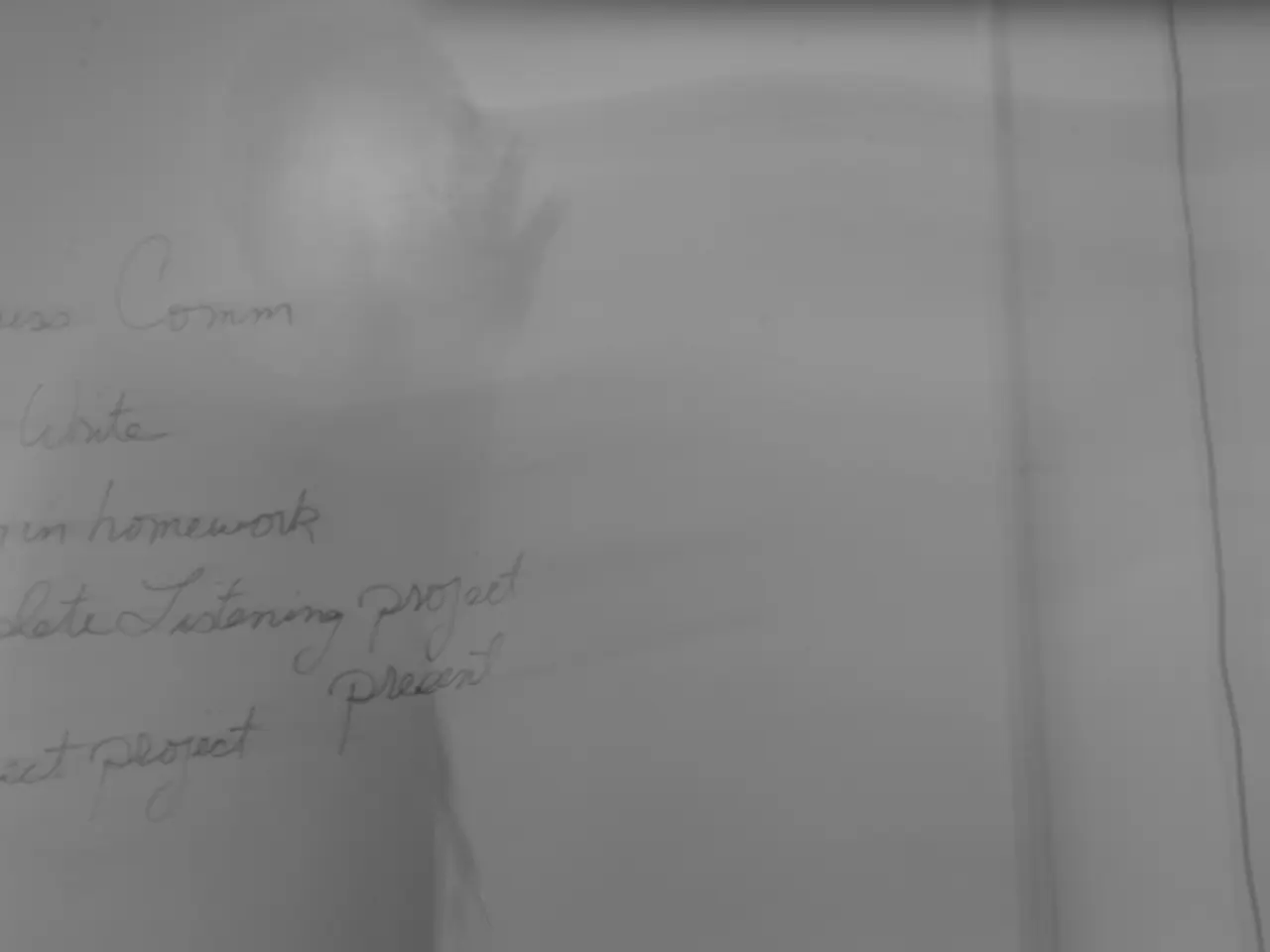Wage floor will escalate to €14.60 by 2027.
Germany's Minimum Wage Hike: Breaking Down the Debate
Berlin (dpa) - The minimum wage in Germany will jump in two stages to 14.60 euros per hour by January 1, 2027. From the start of next year, it will start at 13.90 euros. Federal Minister of Labor, Barbara Bas (SPD), announced the implementation of a corresponding recommendation from the Minimum Wage Commission, despite her party's insistence on a minimum wage of 15 euros. "We will draft a legal regulation, and then we'll pass it," Bas said shortly after the commission's agreement was announced in Berlin.
Currently, the minimum wage stands at 12.82 euros. After weeks of grueling backroom negotiations, the commission of employers and trade unions reached a unanimous decision. A mediation proposal from the independent commission chair, Christiane Schönefeld, was necessary, reports suggest. According to the German Trade Union Confederation (DGB), around six million employees will benefit from the increase.
Employers voice dissent
Schönefeld stated that attempts at political influence contradict the mandate of the independent commission. The lead negotiator for employers, Steffen Kampeter, criticized the considerable pressure exerted on the commission by political parties in recent months. In the spring, SPD leader Lars Klingbeil had asserted, "A minimum wage of 15 euros will be achieved in 2026 if the Minimum Wage Commission takes itself seriously and implements what is in its charter." Kampeter noted that employers now anticipate the promised growth impulses from politics.
Bas: "We could have done better"
Kampeter, trade union negotiator Stefan Körzell, and the commission chair emphasized their dedication to their work. "I don't feel like I swallowed a frog," Körzell from the board of the German Trade Union Confederation added. "Our aim is a functional social partnership, and we've demonstrated that this time—and that's good."
Bas said, "Of course, we would have liked more for the people in this country, but it's important to me that there's at least an increase in the minimum wage." Otherwise, they would have had to discuss it in the coalition. Criticism came from the SPD's labor wing. The black-red coalition should legally set the minimum wage at 15 euros, said the chair of the SPD's working group on work, Cansel Kiziltepe, to the German Press Agency. "15 euros is the minimum for a life in dignity," said the Berlin Senator for Social Affairs.
Merz: No further need for discussion
Federal Chancellor Friedrich Merz (CDU) stated, "I assume that this will also not be a topic that requires further discussion." Merz referred to the fact that the coalition had agreed to implement the commission's recommendation and not to intervene politically.
The Minimum Wage Commission determines the adjustment every two years. The previous decision on the current minimum wage was made against the vote of the trade unions with Schönefeld's vote. The chairwoman spoke of a viable compromise and a balance between employees and businesses. The talks were challenging. Körzell spoke of tough negotiations.
The SPD, which is holding a party conference in Berlin, has made a minimum wage of 15 euros a central theme of its federal election campaign. Baś was to be elected as the new SPD chair alongside Klingbeil in the evening. DGB chairwoman Yasmin Fahimi said at the beginning of the convention to the delegates, "This has been a damn tough struggle." The coalition agreement of CDU, CSU, and Social Democrats had refrained from a concrete commitment and characterized 15 euros in 2026 as "attainable."
Criticism from all sides
There was criticism from social associations that the minimum wage was too low. VdK president Verena Bentele said, "An increase to 15 euros would have been appropriate given the high inflation of recent years. Employees on the minimum wage have to stretch every euro three times due to high prices." There were also critical voices from the economy.
The German Retail Association (HDE), for example, warned, "Jobs must be profitable for employers in the private sector, otherwise, they will disappear." HDE president Alexander von Preen sees numerous jobs in retail at risk. The farmers' association also warned of serious consequences. "This minimum wage has the potential to displace the cultivation of fruits, vegetables, and wine from Germany," said farmers' president Joachim Rukwied. Businesses would be forced to exit labor-intensive crops.
Minimum wage in Germany
The minimum wage in Germany was introduced in 2015 under Chancellor Angela Merkel (CDU). In the exception of the increase to 12 euros in October 2022, the legislature took the decision out of the commission's hands. At the time, the later Federal Chancellor Olaf Scholz (SPD) had placed the minimum wage at the center of his campaign for more "respect" for citizens. The decisive factors for the wage threshold are the development of collective bargaining wages in Germany, calculated by the Federal Statistical Office. The median wage also serves as a checking factor, as 60 percent of the national median wage is considered an appropriate minimum wage. This is intended to prevent even more people from being threatened by poverty.
Millions at risk of poverty
Last year, according to official statistics, 15.5 percent of the population was at risk of poverty—around 13.1 million people in Germany. According to the EU definition, all those who have less than 60 percent of the median income of the total population are considered at risk of poverty. In 2024, this was 1,378 euros per month after taxes and social security contributions for a single person in Germany. However, employers had warned of serious economic consequences from a considerable increase in the minimum wage. Germany faces a third consecutive year of recession in 2025.
Enrichment Insights:
- The minimum wage hike aims to improve living standards and reduce poverty but could lead to increased costs for employers and potential job losses.
- Trade unions view the increase as a step towards their long-standing goals but may continue to push for further increases.
- The government's decision balances economic and social considerations, fulfilling campaign promises while attempting to minimize negative impacts on the economy.
- Social associations and businesses, such as the German Retail Association and the farmers' association, have criticized the increase due to fears of job losses and displacement of products.
- The minimum wage, introduced in 2015 under Chancellor Angela Merkel, is intended to prevent more people from being threatened by poverty. However, it still falls short of providing a comfortable living standard in many parts of Germany.
The finance minister, Barbara Bas, acknowledged that the proposed increase in minimum wage falls short of a comfortable living standard for many. ("Bas: "We could have done better"") Employers, such as Steffen Kampeter and the German Retail Association, have expressed concerns about the increased costs and potential job losses resulting from the minimum wage increase. ("Employers voice dissent", "The German Retail Association (HDE), for example, warned")







